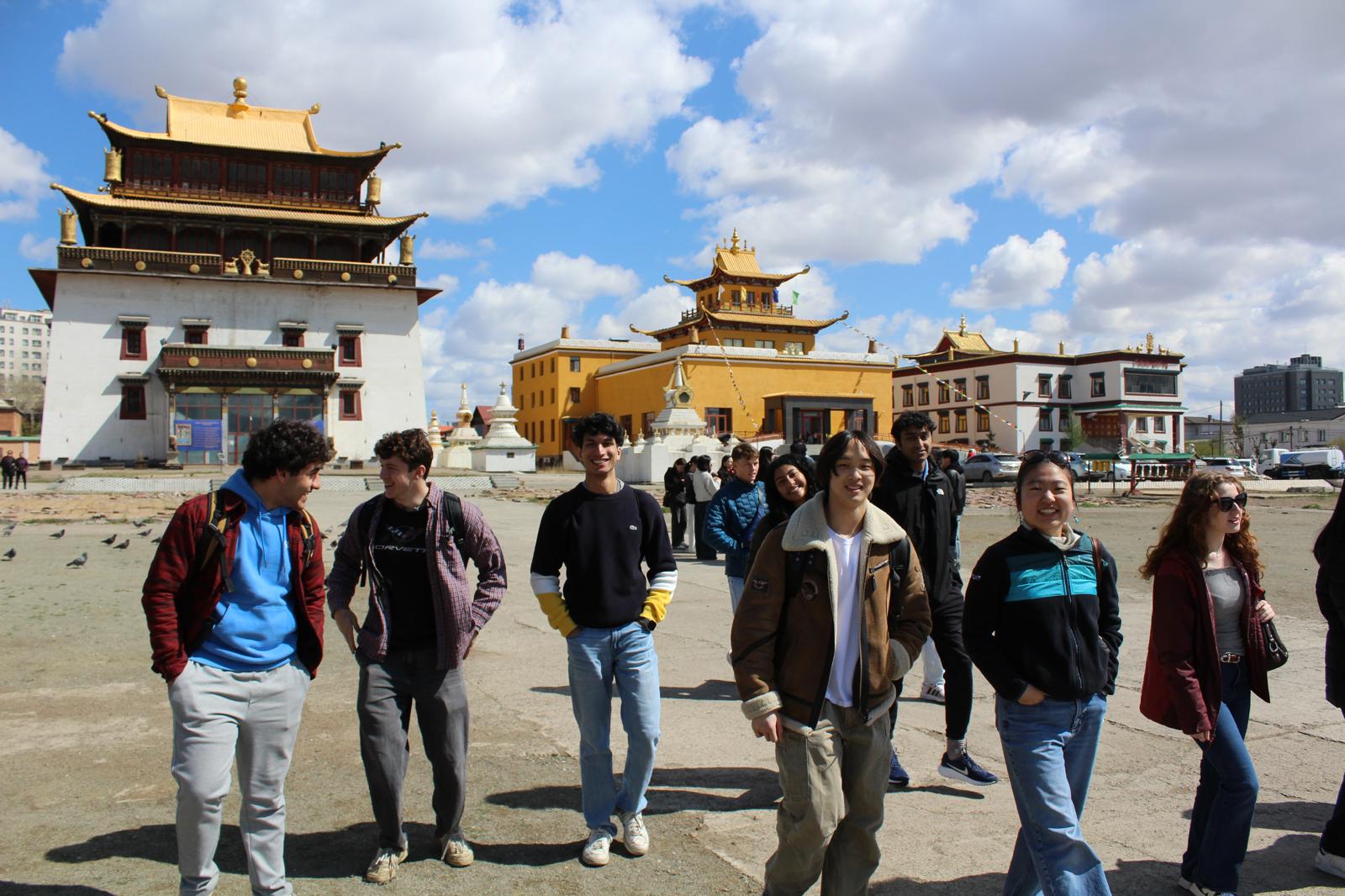
Packing for Wakefulness: Mongolia Beyond The Map
PGS: Mongolian Civilization: Nomadic and Sedentary
Will, one of the Penn Global Seminar Correspondents, shares his experience abroad during the May 2025 travel period. Follow along with the group of correspondents on our blog and look out for their images on the @pennabroad Instagram feed.
The movie director David Lynch once said that “If you have a golfball sized consciousness, when you read a book you’ll have a golfball sized understanding. When you look out, a golfball sized awareness. When you wake up in the morning, a golfball sized wakefulness. But if you could expand that consciousness, then you read the book, more understanding, you look out, more awareness, when you wake up, more wakefulness.”
As my class departs for Mongolia, I am tempted to make the same comparison, but with our trip. Few people gain the same opportunity to travel to the other side of the world – statistically, around 2% of Mongolia’s yearly visitors are American. Throughout the semester, we studied Mongolia both as a traditionally nomadic society and as a growing urban (and sedentary) country. Not only is a nomadic way of life entirely different from that of the average American, but it’s also unique from a global perspective. By having the opportunity to learn about and visit Mongolia, I hope to expand, like David Lynch said, my golfball sized consciousness.
Throughout the semester, we’ve learned about Mongolia’s unique geography and climate. Mongolia’s vast steppe is hemmed in by the Altai mountains to the east, the Khentii mountains to the north, the Khangai mountains to the west, and the Gobi desert to the south. Because it’s not touching any ocean, less water vapor means Mongolia is subject to large fluctuations in temperature. To prepare, I packed shorts for 70 degree weather and a winter coat for 30 degree weather. Based on the weather forecast, I have a feeling I’ll be wearing the coat a lot.
If you’ve ever seen the movie The Secret Life of Walter Mitty, then you’ll know the scene when Walter finally finds O’Connell in the mountains of Afghanistan, taking a photo of an endangered snow leopard. O’Connell says, “Beautiful things don’t ask for attention.” I can’t help but reflect on this idea as I sit on the plane (wish me luck… the flight to Seoul is ~16 hours, with a 3 hour layover, and then a ~3 hour flight to Ulaanbaatar). O’Connell’s point, I think, captures a lot of my excitement for Mongolia. The vast Mongolian steppe is out there, roamed for centuries by the descendants of the largest human empire ever, and it will continue to exist whether you visit it or not. It’s up to us, then, to seek it out and experience it.
I look forward to Khustai National Park, where we will camp in gers (yurts), as well as exploring the capital, Ulaanbaatar. We’ll also make the trip out to Kharhorin, the ancient capitol of Chinngis Khan’s empire, and Ugii Lake, home to migratory birds. Although we won’t be traveling to the western Altai mountains where snow leopards live, like O’Connell, I can’t wait to take photos of all the animals we’ll see: Przewalski’s horses, Bankhar dogs, and many, many sheep.
Read Related Blogs

Raising a Heartivist Generation: Humility is the Cheat Code
Penn Global Seminar: Compassionate Leadership: “The Power of Love, Service, and Inner Work”: Experiencing the Life of Mahatma Gandhi and other Compassion-based Leaders Mariama, one of the Fall 2025 Penn…

Lost in Translation
Penn Global Seminar: Energy, Security, and Geopolitics Chenyao, one of the Fall 2025 Penn Global Seminar Correspondents, shares her experience abroad during the Winter Break. Follow along with the group of…

Raising a Heartivist Generation: Atop a Giant’s Shoulder
Penn Global Seminar: Compassionate Leadership: “The Power of Love, Service, and Inner Work”: Experiencing the Life of Mahatma Gandhi and other Compassion-based Leaders Mariama, one of the Fall 2025 Penn…